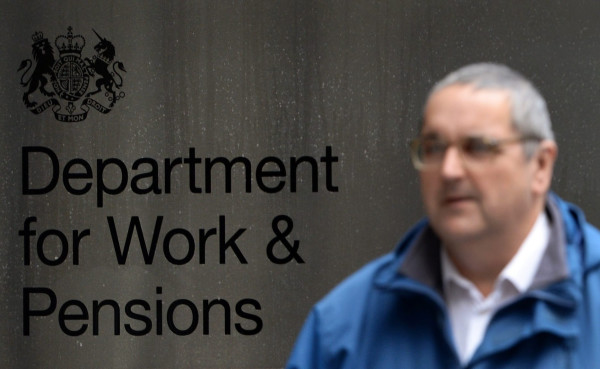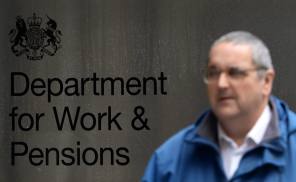
DWP fails to end transfer ‘war’ between PensionBee and providers

Attempts by the Department for Work and Pensions and the Pensions Regulator to clarify the intent behind rules governing pension transfers have failed to settle the matter between PensionBee and providers it accused of wrongdoing.
PensionBee announced on July 4 that it had reported a number of pension providers to the DWP, accusing them of exploiting loopholes in the law to unnecessarily block and obstruct transfers.
The People’s Pension, Cushon, XPS and Railpen were among the list of providers cited, although each strenuously denied the charge.
The providers argued that the wording of the relevant regulations explicitly mention incentives to transfer — such as PensionBee’s “refer a friend” scheme — as a reason to raise “red flags”, which means a statutory transfer cannot be permitted.
Intent does not trump the law
Responding to the furore, TPR and the DWP issued a joint statement on July 5 attempting to clarify the regulations, saying that “the regulations are not intended to impose additional burdens on schemes or administrators, or to impact on standard business practices”.
TPR guidance states that trustees may wish to retain records of “low-risk personal pension schemes”, which they can use to oversee some transfers without an onerous administrative burden.
“These records may allow you to maintain a smooth transfer process where due diligence analysis shows no risk,” with TPR advising that trustees “may determine that the transfer can proceed without the need for additional checks”.
“As a reminder, trustees should take a risk-based approach to their decision-making,” TPR and the DWP’s joint statement advised.
“Where a transfer causes no concern, which should be the vast majority of cases, they should proceed with no further action required.
“Where trustees believe the regulations mean there is no statutory right to transfer but they have concluded following due diligence that the transfer is at low risk of a scam, trustees can grant a ‘discretionary transfer’ where scheme rules allow.”
The statement was criticised by Andrew Warwick-Thompson, independent chair and professional trustee, who took to LinkedIn to brand it a “laugh out loud moment”.
He said that trustees are already granting “discretionary” or “non-statutory” transfers where conditions allow, but that this depends both on the “appropriate powers under the trust deed and rules” and on the member signing a non-statutory transfer discharge form.
He suggested the fault lay with badly drafted regulations.
Though the joint statement contends that transfers should cause no concern in “the vast majority of cases”, this would appear to be contradicted by the facts.
XPS reported in February that pension transfer red flags had risen to 50 per cent, despite an overall reduction in transfer activity, while almost three-quarters (70 per cent) of transfer requests made in March exhibited scam indicators.
PensionBee founder and chief executive Romi Savova welcomed the joint statement, hailing it as “a commitment to pension savers’ switching rights”.
“Pension providers have been put on notice: routine pension transfers can and should go ahead promptly,” she said.
“It now remains to be seen whether — despite the explicit and unambiguous announcement that the legislation should have no impact on the process for transfers that, prior to the introduction of the regulations, would have caused no concern — the handful of pension providers intent on delaying transfers will continue to frustrate consumers from moving their own money.
“Should these practices continue, we would call on regulators to end the pension transfer lottery once and for all: by legislating for a pension switch guarantee”.
PensionBee also released data on the number of completed transfers that took place prior to what it called providers’ “inventive interpretation” of the legislation, showing that 17,882 came from The People’s Pension, 1,166 came from a combination of Creative Pension Trust, HS Admin, Cushon, and the Workers Pension Trust, 164 came from XPS, and 77 were from RPMI.
Helen Morrissey, senior pensions and retirement analyst at Hargreaves Lansdown, was similarly pleased, saying: “The statement is clear the regulations should not impose ‘additional burdens on schemes and administrators’ and that most transfers should continue to go through without concern as long as the provider has robust due diligence processes in place.
“Those providers whose rules do not enable them to make discretionary transfers may be able to update them.”
A number of industry commentators were less than satisfied, however, pointing out that the joint statement’s reiteration of the intent behind regulation does not change the fact that the regulations as written compel them to flag incentivised transfers.
Quilter’s head of retirement policy Jon Greer said: “We empathise with the sentiment of the announcement, but trustees may still feel as though they are left in a difficult position given the letter of the law is telling them something rather different.
“There remains a fundamental mismatch of position between the DWP and TPR and some occupational pension schemes and their legal advisers, and this is unlikely to be resolved by the announcement.”
LCP senior consultant Daniel Jacobson likewise pointed to the “fundamental mismatch” between TPR’s guidance and the wording of the legislation, which may ultimately require a test case before the ombudsman or the courts to settle.
Until that happens, “many trustees will rightly err on the side of following the wording of the legislation, even if this is not the stated intention of it”, he said.
Review taking too long
The joint statement from TPR and the DWP reiterated that the regulations are currently being reviewed, and a report is due 18 months after the rules were put into force. They have thus far been in place for six months.
Industry commentators were not unanimously content to wait that long, however.
“As it stands, the drafting of the rules is not specific enough in a few areas, for example its definition of overseas investments, which make no distinction between overseas investments that prevent a scam risk as opposed to those that don’t,” Greer explained.
“If this goes unchanged, it will result in more and more pension savers being forced to take [Money and Pensions Service] guidance before they are able to make a low-risk transfer. As such, we hope that this issue is addressed well within the 18-month review period previously committed to.”
Jacobson pointed out that the review still “leaves the industry with around a year to go”, and urged the DWP “to bring this review forward to fully engage with the industry, to conclude the review and bring in the changes swiftly and to make meaningful changes that will align the intent and the wording of the legislation that gives trustees and the industry clear, workable guidelines to follow”.
The DWP and TPR have been approached for comment.
Benjamin Mercer is a senior reporter at Pensions Expert, FTAdviser's sister publication



